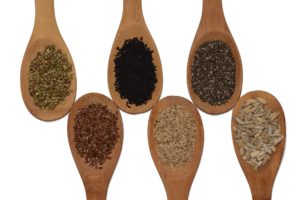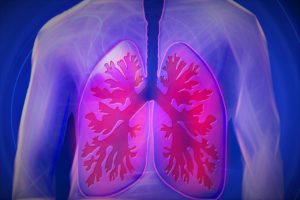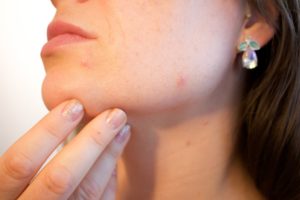Also known by its Latin name, Nigella sativa, black cumin seed is an annual flowering plant from the buttercup family and are native to southern Europe, North Africa and Southwest Asia. The seeds are smaller than sesame seeds, and dark, almost black. The seeds have been used for thousands of years in the both as a seasoning spice and for herbal medicinal applications. The Egyptian tomb of King Tutankhamen contained a bottle of black cumin seed oil. Queen Nefertiti also is known to have used black seed oil, most likely due to its abilities to strengthen and bring luster to hair and nails. The prophet Mohammed reportedly said that the seeds of the black cumin plant could cure anything but death. The seeds can be used whole or ground up with a spice mill for cooking, but it is also found as an oil.
Black cumin has at least 30 pharmacological actions, recognized by scientific peer-review journals. They include:
- Anti-diabetic
- Anti-cancer
- Analgesic
- Antimicrobial
- Anti-inflammatory
- Bronchodilator
- Immunomodulator
- Spasmolytic
- Hepato-protective
- Renal protective
- Gastro-protective
- Antioxidant properties
How does it work?
There is some scientific evidence to suggest that black seed might help boost the immune system, fight cancer, prevent pregnancy, reduce swelling, and lessen allergic reactions by acting as an antihistamine. Due to its miraculous power of healing, Black Cumin has got the place among the top-ranked evidence-based herbal medicines. Most of the therapeutic properties of Black Cumin seed are due to the presence of thymoquinone, which is a major bioactive component (30%-48%) of the essential oil (reference here) A compound found in black seed, thymoquinone, has been studied in and shown to reduce the growth of tumors in lab rats. The oil also may help to reduce the tissue damaging effects of radiation that is used to kill cancer cells. But these results haven’t been studied in humans enough yet. Black seed oil should not be used as a substitute for conventional cancer treatments.
Hundreds of studies have been conducted on black cumin seed and have shown that compounds from the seeds help fight diseases by boosting the production of bone marrow, natural interferon, and immune cells. The seeds of the black cumin plant contain over 100 chemical compounds, including some yet to be identified. In addition to what is believed to be the primary active ingredient, crystalline nigellone, black cumin seeds contain: thymoquinone, beta sitosterol, myristic acid, palmitic acid, palmitoleic acid, stearic acid, oleic acid, linoleic acid, linolenic acid, arachidonic acid, protein, vitamin B1, vitamin B2, vitamin B3, folic acid, calcium, iron, copper, zinc, and phosphorous.
Research study findings
Respiratory ailments – Research shows that taking black seed by mouth along with asthma medicines can improve coughing, wheezing, and lung function in some people with asthma. But it seems to work only in people with very low lung function before treatment. And it does not seem to work as well as the drugs theophylline or salbutamol. Black seed has been shown to help with multiple respiratory ailments, such as asthma, bronchitis, rheumatism, pertussis, and symptoms associated with the common cold.
Diabetes – Early research shows that taking black seed powder can improve blood sugar levels in people with diabetes. Black seed might also improve levels of cholesterol in people with diabetes. Doses of 2 grams daily seem to be needed for any benefit.
Reproductive health – To improve sperm function. Research shows that taking black seed oil increases the number of sperm and how quickly they move in men with infertility.With women, black seed has been known to stimulate the onset of a menstrual cycle, and increase the flow of breast milk in nursing mothers. Research has shown that applying a gel containing black seed oil to the breasts during the menstrual cycle reduces pain in women with mastalgia. However, it is NOT recommend for women who are pregnant as it can induce abortion.
Skin conditions – Black seed contains essential fatty acids, vitamins. amino acids, and flavonoids. These components make the oil a great moisturizer, anti-aging ingredient, reduce the appearance of dark spots and acne. The oil provides vitamins A, B, and C along with minerals like potassium, calcium, magnesium and zine. The essential fatty acids in black seed oil provide deep, lasting moisturization for skin, helping to reduce the appearance of fine lines and wrinkles. And even though it’s an oil, it doesn’t clog pores.
Digestive discomfort – Almost 80% of the populations of developing countries rely mainly on herbal medicine in primary medical therapy (reference here). Black seed contains the compounds nigellicine, nigellidine, thymoquinone, dithymoquinone, thymol and carvacrol. Several beneficial pharmacological properties of this plant such as anti-oxidant, anti-bacterial, anti-histaminic, anti-hypertensive, hypoglycemic, anti-fungal, anti-inflammatory, anti-cancer and immunomodulatory effects were reported and different therapeutic properties such as reliving bronchial asthma, jaundice, hydrophobia, paralysis, conjunctivitis, piles, skin diseases, anorexia, headache, dysentery, infections, obesity, back pain, hypertension and gastrointestinal problems, have been described for the seeds of N. sativa and its oil. Traditionally used in developing countries to treat digestive orders. Hippocrates was said to have used black cumin oil to improve digestive ailments. The seeds are considered to be carminative, which means they aid digestion and can help to quell colic pain, stimulate urine production, improve digestion, decrease bloating, gas and stomach cramps, alleviate diarrhea and dysentery, treats hemorrhoids, and relieves constipation.
Blood pressure – Taking black cumin seed extract for two months has been shown to reduce high blood pressure in people whose blood pressure is mildly elevated. Despite numerous studies, the way in which black cumin seed lowers hypertension is not fully understood. Black cumin seed is believed to have a relaxant effect on smooth muscles and may act like a calcium channel blocker to dilate blood vessels. Other researchers suggest black seed extracts may help the heart pump more efficiently, or that black seed has a diuretic action. In clinical trials using black seed powder, the doses used varied between 500mg, 1g, 1.5g and 2g per day. In studies using black seed oil, doses varied between 5ml, 200mg and 3g oil per day.
Dosing
The following doses have been studied in scientific research:
By mouth:
For asthma: 2 grams of ground black seed has been used daily for 12 weeks. Also, 500 mg of black seed oil has been taken twice daily for 4 weeks. In addition, 15 mL/kg of black seed extract has been used daily for 3 months. A single dose of 50-100 mg/kg has also been used.
For diabetes: 1 gram of black seed powder has been used twice daily for up to 12 months.
For high blood pressure: 0.5-2 grams of black seed powder has been taken daily for up to 12 weeks. Also, 100-200 mg of black seed oil has been used twice daily for 8 weeks.
To improve sperm function: 2.5 mL of black seed oil has been used twice daily for 2 months.
On the skin:
For breast pain: A gel containing 30% black seed oil has been applied to breasts every day for two menstrual cycles.
Is black seed oil safe?
As always, a word of caution is advised when considering taking a new supplement. It is possible that black seed oil can increase the effects of medicines that the body processes through the cytochrome P450 pathway. Enzymes in this pathway metabolize 90 percent of common medications. Examples of common medications can include beta-blockers such as metoprolol (Lopressor) and the blood thinner warfarin (Coumadin).
Some conditions in which supplementing with black seed or black seed oil should be used with caution are:
Pregnancy and breast-feeding: Black seed seems to be safe in food amounts during pregnancy. But taking larger medicinal amounts is likely unsafe. Black seed can slow down or stop the uterus from contracting. Not much is known about the safety of using black seed during breast-feeding. Stay on the safe side and avoid use.
Children: Black seed oil is possibly safe for children when taken by mouth short-term and in recommended amounts.
Bleeding disorders: Black seed might slow blood clotting and increase the risk of bleeding. In theory, black seed might make bleeding disorders worse.
Diabetes:Black seed might lower blood sugar levels in some people. Watch for signs of low blood sugar (hypoglycemia) and monitor your blood sugar carefully if you have diabetes and use black seed.
Low blood pressure: Black seed might lower blood pressure. In theory, taking black seed might make blood pressure become too low in people with low blood pressure.
Surgery: Black seed might slow blood clotting, reduce blood sugar, and increase sleepiness in some people. In theory, black seed might increase the risk for bleeding and interfere with blood sugar control and anesthesia during and after surgical procedures. Stop using black seed at least two weeks before a scheduled surgery.
If you take any prescription medications regularly, talk to your doctor or pharmacist before starting to take black seed oil. You should never stop taking any of your regular medications without talking to your doctor or pharmacist first. Black seed oil can be helpful to liver function, but taking too much black seed oil can also be harmful to your liver and kidneys. If you have problems with either of these organs, talk to your doctor to determine a safe dose (if any). Topical applications of black seed oil have been known to cause allergic reactions in some people. Do a patch test before applying it to a large area on your skin.










